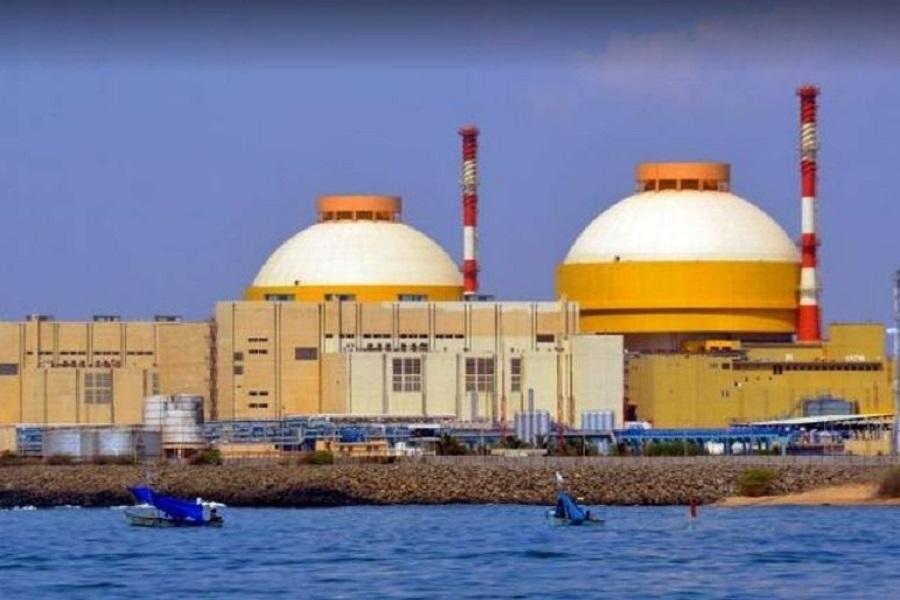
Centre Reviews 100 GW Nuclear Mission to Boost Clean Energy Goals
In a significant move to achieve the ambitious target of expanding India’s clean energy basket, the Union Power Minister Manohar Lal Khattar and Minister of State for Atomic Energy, Dr Jitendra Singh, recently convened a high-level meeting to discuss the 100 GW Nuclear Energy Mission. This meeting is a follow-up on Prime Minister Narendra Modi’s vision of achieving Net Zero emissions and reaffirms India’s commitment to reducing its carbon footprint.
The meeting, which took place on Friday, brought together key stakeholders from the nuclear energy sector, including officials from the Department of Atomic Energy, Nuclear Power Corporation of India Limited (NPCIL), and other nuclear power plants operators. The objective of the meeting was to review the progress of the 100 GW Nuclear Energy Mission and outline key directives to achieve this ambitious target.
As part of the mission, the Centre has set a target of generating 100 GW of nuclear power by 2031. This is a significant increase from the current installed nuclear power capacity of around 6.7 GW. The expansion of nuclear power generation is expected to play a crucial role in reducing India’s dependence on fossil fuels and achieving the country’s clean energy goals.
The meeting also discussed the challenges and opportunities in the nuclear energy sector, including the need for investment in new technologies and infrastructure. The stakeholders also emphasized the importance of ensuring the safety and security of nuclear power plants and the need for public acceptance of nuclear energy.
The Centre’s review of the 100 GW Nuclear Energy Mission is a significant step towards achieving India’s clean energy goals. The mission is expected to not only reduce the country’s carbon footprint but also create new job opportunities and stimulate economic growth.
Key Directives Outlined During the Meeting
During the meeting, the Centre outlined several key directives to achieve the 100 GW Nuclear Energy Mission. These directives include:
- Increase in Nuclear Power Generation: The Centre has set a target of increasing nuclear power generation from the current 6.7 GW to 100 GW by 2031. This will require the construction of new nuclear power plants and the expansion of existing ones.
- Development of New Technologies: The Centre has emphasized the need for investment in new technologies and infrastructure to support the expansion of nuclear power generation. This includes the development of advanced reactor designs and the use of small modular reactors (SMRs).
- Ensuring Safety and Security: The Centre has emphasized the importance of ensuring the safety and security of nuclear power plants. This includes the implementation of robust safety standards and the use of advanced technologies to detect and prevent accidents.
- Public Acceptance: The Centre has recognized the importance of public acceptance of nuclear energy. This includes the need for public education and awareness campaigns to inform people about the benefits of nuclear energy and the measures in place to ensure its safety and security.
- Investment in Nuclear Infrastructure: The Centre has emphasized the need for investment in nuclear infrastructure, including the construction of new nuclear power plants and the expansion of existing ones.
Benefits of the 100 GW Nuclear Energy Mission
The 100 GW Nuclear Energy Mission is expected to have several benefits for India. These benefits include:
- Reduced Carbon Footprint: The expansion of nuclear power generation is expected to reduce India’s dependence on fossil fuels and help the country achieve its clean energy goals.
- Job Creation: The construction and operation of new nuclear power plants are expected to create new job opportunities in the energy sector.
- Economic Growth: The expansion of nuclear power generation is expected to stimulate economic growth and help India become a net exporter of clean energy.
- Energy Security: The 100 GW Nuclear Energy Mission is expected to provide India with a reliable and sustainable source of energy, reducing the country’s dependence on imported fuels.
- Reduction in Air Pollution: The expansion of nuclear power generation is expected to reduce air pollution in India, improving the health and well-being of citizens.
Conclusion
The Centre’s review of the 100 GW Nuclear Energy Mission is a significant step towards achieving India’s clean energy goals. The mission is expected to reduce India’s dependence on fossil fuels, create new job opportunities, and stimulate economic growth. The Centre’s directives to increase nuclear power generation, develop new technologies, ensure safety and security, and invest in nuclear infrastructure are expected to help achieve this ambitious target.
As India continues to grow and develop, it is essential that the country prioritizes clean energy and reduces its dependence on fossil fuels. The 100 GW Nuclear Energy Mission is an important step in this direction and is expected to play a crucial role in achieving India’s clean energy goals.
Source:






